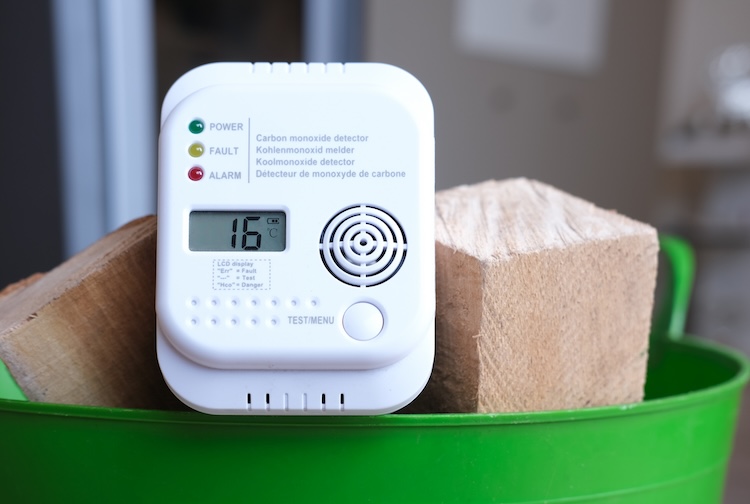
How to help your skin during colder months
VCU Health dermatologist Kimberly Salkey provides effective strategies to keep your skin healthy and hydrated all season long.
November 19, 2024 There are many strategies you can use to protect your skin during the colder months. (Getty Images)
There are many strategies you can use to protect your skin during the colder months. (Getty Images)
By Mia Stephens
While serving as a durable barrier to the elements, our body’s largest organ can become compromised as seasons change.
As many as 1 in 3 Americans experience some type of skin condition and particularly in the colder months, keeping your skin moisturized and healthy can be challenging.
But with a few simple adjustments, Kimberly Salkey, M.D., from VCU Health said we can shield and protect our skin with confidence.
“There are good habits that you can build and follow all year round that will help protect your skin even through the winter months,” said Salkey, associate professor of dermatology and residency program director for VCU Health’s Department of Dermatology.
VCU Health News spoke with Salkey about strategies that you can implement to protect and nurture your skin as the colder months approach.
What are the most common skin conditions and where are they most visible?
There are lots of different skin conditions in general that are classified into 24 categories. However, when it comes to the most common, acne tends to be number 1, affecting up to 50 million Americans every year. Some other common skin conditions include eczema, psoriasis, rosacea, and hives. You can typically see these skin conditions on your hands, neck, elbow and knees (usually at the bend), around the eyes, ankles, and feet.
What are the main causes of most skin conditions?
There are usually multiple factors that can lead someone to develop a skin condition. Genetics can play a big role. Some conditions can be weather-dependent and worsen during the winter. Everything from sun exposure to the products that you use on the skin can be a factor too. As in all medicine, many conditions are idiopathic, which means we don't exactly know what the cause is.
Should we still be concerned about the sun in the wintertime?
Yes. Ultraviolet light causes skin cell damage that results in fine lines, wrinkles and skin cancer. No matter what time of the year, sunscreen should be part of your daily routine. A sunscreen with an SPF of 30 or greater should be used for your face and any skin that's exposed to the sun, even in the wintertime.
Some skin diseases can get worse by sunlight while others, like eczema and psoriasis, may improve with sun exposure. UV light can have a therapeutic anti-inflammatory effect on the skin which can be helpful to suppress the inflammation of these skin diseases. Limited sun exposure in winter may lead to flare-ups of these conditions, however, sunscreen should still be used.
For relief, what are best practices to keeping dry skin at bay? Are there particular ingredients that patients should use or avoid when choosing products?
I advise my patients to take a short bath or shower every day. Sometimes people worry that showering too often will dry their skin out, but it's really best to get a little moisture into the skin every day. Limit time in the shower to 10 minutes per day. If you take two showers a day, then they need to be five minutes a piece, or you can take three, three-minute showers. You can divide it up however you want but try to keep it at no more than ten minutes in the water per day.
Other helpful skin relief tips include:
- Use gentle soaps or soap-free cleansers.
- Avoid fragrance or deodorants, there are many options, usually clearly labeled
- Use products only in the places where you need it – under the arms, private area, hands, and feet.
- Using a good moisturizer such as a cream or an ointment within three minutes of getting out of the shower is crucial. You can recognize these products because they usually come in jars and tubes.
- Avoid lotions in plastic containers with a pump because they contain mostly water and will not provide the moisture that the skin needs.
Ultimately, when it comes to choosing products and garments, it’s about personal preference in terms of what feels best on your skin.
When considering ingredients to avoid, there are certain products that are common skin allergens. One such product is neomycin, commonly used in Neosporin and other first-aid creams. Topical diphenhydramine (Benadryl) can also trigger skin allergy. Overall, if a product makes things worse instead of better, discontinue using it.
For clothing, certain fabrics such as plain cotton tend to be well tolerated, especially for patients with very sensitive skin. As you might imagine, some fabrics like wool can be itchy and irritating for patients. However, there are certain companies that make garments specifically for patients with sensitive skin that may have a cotton blend with other materials as well.
When should someone consider seeking medical advice?
A great starting point to nail down your routine is to use gentle cleansers and moisturizers. If you’re doing that but still experiencing the symptoms below, it’s time to seek professional advice.
- Persistent itching
- Blisters
- Redness
- Bumps
- Sores



